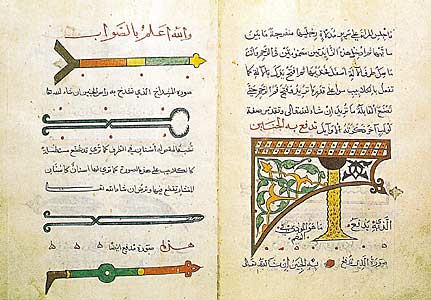The other day i was thoroughly amazed to know that my audi A6 mechanic is infact a molecular biologist
:O
i asked him as to what on earth was he doing in a car-ridden garage instead?
To my unsurprise though, he pointed towards his awesomely handsome earnings, his BMW & his yemeni nationality barring him from government run high-profile specialized (& saudialized) laboratories.
He asked me to teach him english linguistic skills (on top of presenting a persian cat as a gift).
I asked him to teach me arabic instead, & keep his pet since his lil kids were all teary on their father's decision.
On the more -
I'm interested in this system;
(a want & not a need)
►http://www.youtube.com/watch?v=Kyy8Z-39aOs
Returning -
Telecommunications, especially mobile communication has been through drastic changes in recent years, & there is no sign of stopping to rest anytime sooner.
Remember the days when mobile unit was hard to fit in deepest of pockets with a single technology? & now a palm device holds a whole plethora of multiple technologies!..
The vision of doing better, & faster has lead us from narrow band digital 2G, to wide-band 3G with internet access, with us knocking the doors of all IP packet switched network; Next-Gen ultra-boardband 4G - where G stands for generation & not just guesstimation.
Fourth-generation (4G) mobile systems dictate entirely new approaches & novel infrastructure solutions to seamlessly integrate the existing wireless technologies including wireless broadband (WiBro), 802.16e, CDMA, wireless LAN, Bluetooth, and etc.
The key features of 4G mobile systems can be summarized as follows.
First, 4G mobile systems are all-IP based heterogeneous networks that allow users to use any system at any time and anywhere.
Then, 4G mobile systems provide end-users with high-speed, large volume, good quality, global coverage, and flexibility to roam between different types of technologies.
Finally, 4G mobile systems provide high-data-rate services to accommodate numerous multimedia applications such as video conferencing, on-line gaming, etc.
Yet the vision still continues...
What comes up is 5G..
& what stores in for 5G?
Well, for one, one of the candidate candy ideas is the use of 'Cognition' in communicating mobile.
The vision to give emotions & feelings to the mobile set itself to sense its surroundings.
The motivation behind cognition is efficient utilization of one of the most precious (& costly for telecom companies for that matter) resources in telecom; the frequency band. Since even at its busiest, current technology is not capable to consume the alloted band completely & every now & then chunks of this precious resource are left unused here & there; referred to as spectrum holes.
5G promises to utilize this otherwise wasted portions of frequency, by putting intelligence or cognition in a mobile set. Two types of users are envisioned in this recent paradigm; primary users, secondary users.
Primary users have priority over secondary users, i.e.; secondary users could only gobble up the leftover pieces of the pie (frequency band).
The challenge is in finding those left-overs portions, as they keep on changing their position and size.
This calls on for sensing of the environment (radio sensing), and then analyzing it (radio scene analysis) and finally predicting the next empty slot. Only then 5G technology will have the ability carryout a meaningful communication.
Cognitive Radio is the new hype..
cog. rad. band wagon is now the focus of attention & tremendous research efforts are going down this direction.
wonder how many generations will come n go..
& like ever propping up dimensions (specially after the discovery of quantum mechanics) we'll end up with like 15 G or something..
So lets just make hay while the sun shines!
~*~*~*~*~~*~*~*~*~











.jpg)





